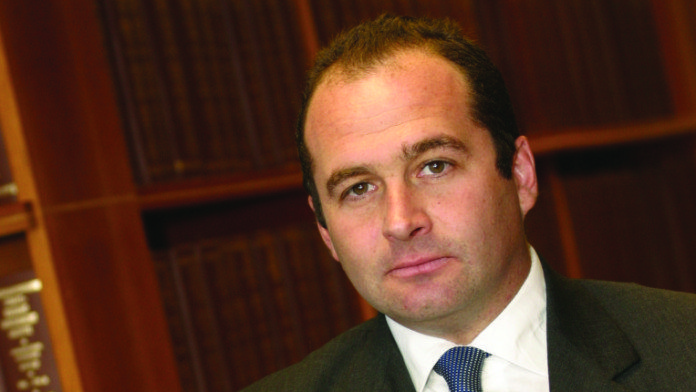
Mining lawyer Hulme Scholes has resumed his campaign to have South Africa’s Mining Charter scrapped in its entirety more than a year after judgement was reserved when he first brought his application to the Pretoria High Court in February 2017.
Scholes told Miningmx that – after “taking his foot off the gas temporarily” so as not to cause any confusion with the parallel legal action between the Chamber of Mines and the Government on Mining Charter 3 – he is now putting his foot back on the accelerator pedal.
Asked why he was doing this – given the apparent progress being made on reforming the Mining Charter through negotiations between the Chamber of Mines and the Department of Mineral Resources (DMR) led by new mines minister Gwede Mantashe – Scholes replied, “I will withdraw my application immediately if I see sanity emerging from those negotiations.”
In February last year, Judge Philip Makoena reserved judgement without hearing any of the merits of Scholes’ case so as to assess two key side issues raised by the DMR in its opposition to the application.
These were the DMR’s contentions that Scholes did not have “locus standi” to be able to bring the application because he did not have sufficient interest in the mining sector to do so and that he should have “joined” the Chamber and other interested parties to his application. Had the DMR succeeded with these contentions then Scholes’ application would have been dismissed without the Court having to deal with the issues raised in the case.
Scholes commented, “ the judge came back later last year and indicated that I do have “locus standi” in the matter. He also ruled that I should join other interested parties to my application. My case is very much alive because that judgement has bolstered me.
“I have now approached the Chamber of Mines; the National Union of Mineworkers; Solidarity; UASA and SAMDA (the South African Mining Development Association) to join the application. I have done so because these are the parties which were signatories to the first Mining Charter.
“These parties can oppose being joined to my application but that would not make sense for them in my opinion. They have a choice which is that they can be inside the tent taking part in the discussions or they can be outside the tent trying to listen in and find out what is going on.”
In February last year Scholes said his legal action to declare the Mining Charter invalid was not about “blocking empowerment” – as some had alleged – but was instead about blocking “bad law”.
In Scholes’ opinion, a “sane” outcome from the negotiations between the Chamber of Mines and the DMR could be an agreement to give effect to the recent High Court Judgement that the Chamber obtained on the so called “once empowered always empowered” principle”.
He also wants other amendments to the “disastrous Zwane Charter 3” with an appropriate amendment to the Minerals and Petroleum Resources Development Act which would provide clarity on transformation and encourage investment.
“That offers a way out that both sides could accept. You leave existing mining rights that have been empowered at one point alone and you say ‘ let’s look forward’ at the new mining rights that will be granted. That would be the sensible thing to do.”











